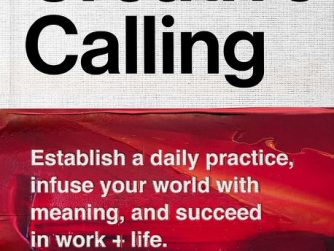 In 1997, I worked for an IT company in Florida. We had some folks come in with a plan to design a pdf e-reader and wanted us to do some web work as part of their project. I wasn’t impressed then.
In 1997, I worked for an IT company in Florida. We had some folks come in with a plan to design a pdf e-reader and wanted us to do some web work as part of their project. I wasn’t impressed then.
Spring forward to the emergence of the amazon kindle. The biggest issue at its inception was that it was a uni-tasker with a hefty price. Plus, there are few great moments in life better than hearing that hardback book crackle as you open it for the first time and smell the ink on the page. It can be intoxicating. For me. In addition, the thought of sitting at my laptop reading a pdf isn’t my favorite thing in the world to do. I almost always print them out so I can lounge around and read wherever I can get comfortable.
Then came the ipad, and I was indeed intrigued. This was a multi-tasker – light, durable, and hey, it’s made by Apple! The price point was good, Apple was opening an iBook store, you could get a kindle app for it. Maybe this ebook thing won’t be so bad. So I got the kindle app for my iphone and tried it out, and was impressed, especially when it was upgraded so I could highlight and make notes.
Then, this past fall, amazon announced the new kindle 3. And its price of $139 for the non-3g version. For someone who reads a lot, that reduces the ROI to less than a year’s worth of book buying. That was the tipping point for me, so I put in a request for a new kindle as a Christmas present. And as sure as the sun rises in the East, I received one.
Let me first say that I love it. It is a great addition to to my toy collection.
As I read my first book on it, however, I noticed some changes in my reading and how it will continue to change my reading.
1. I read faster. Now I’m not a speed reader, but I read. A lot. Not 20 books a week a lot. More like 50-75 books a year that I read from cover to cover or at least read part of. But with the kindle, I read the three books I have completed faster than reading them in print. That means more time for reading and thus more information I can consume.
2. The uni-tasking of amazon allows for more focused reading. I am not opening and closing the highlighter cap, I don’t have a pen and moleskine-type notebook that I can write in or doodle in. And with no writing instrument around, I’m not opening its top or twirling it in my hands.
3. I can make clear notes in the text rather than try to write in some code on the side margins. Those notes are available online for me as well. This facilitates #2 even more.
4. I get (almost) instant access to thoughts that I have clipped from the book. When I finish a book, I copy those notes and clippings and put them in a searchable database that I can use in future projects. That may help facilitate #1 the more I think about it.
5. I have cut down on my clipping (think highlighting). In a traditional book, I can turn it yellow with all the highlighting I do. But you get limited clipping space per book with the kindle. So before I make a note or clip something I have to decide if it is really worth that space.
6. I have to retrain my brain how I read. When I read a traditional book, I would highlight a section. And even years later, I could remember what side of the page the idea was on, what general the context of the note was, etc, so I knew generally where in the book I could find the information later. I don’t have to do that now, which may facilitate #1.
7. Everything can become readable on a kindle. A great tool to download if you have a kindle is the program Calibre. It’s available for Windows and Mac, and allows you to covert almost any document into a kindle format and then transfer that file to your kindle for you. So that big paper you need to read or the 50 page pdf that needs to be read can be converted and transferred quickly and easily for kindle reading. It may not be especially pretty, but it works great.
Do you have a kindle or nook or some other e-reader? How has it changed your reading experience?
Kindle Wireless Reading Device, Wi-Fi, Graphite, 6″ Display with New E Ink Pearl Technology




My relationship with all of my books (and the ones that I haven’t even bought yet) is probably not healthy. I have dug in my heels on the issue of not even wanting a Kindle. Then Marty gets one. Then other people who love books as much as me, sings Kindle’s praises
Then you write this. Sigh. I feel alone. I also feel myself giving in.
Welcome to the dark side Sonya. It’s only a matter of time!
I’m curious about your long term experience with the Kindle. I’ve been using the app on my phone (along with the Google books app) and I like the results, but I’m still not convinced that I should move to a primarily electronic reading system.
One thing that’s holding me back is the recent research showing that the ease of reading (which you cite) is actually detrimental to overall comprehension and retention of the information. It’s OK with me if I don’t retain the fiction that I read, but the non-fiction work I read I want to remember and retain.
How have you experienced retention versus printed text?
Hey James! How are you?
I do not know that I am a classic case for the study of reading comprehension. I have been a concept reader in general, meaning that I am looking for ideas and concepts. Comprehension for me has always been a multi-tasked process. Read. Process. Retype (or rewrite). Process. Blog (or write). Continue processing. Talk with others about it. Process. You get the picture.
So, for example, I just finished Scot McKnight’s new book. I did blow through it, and I appreciate his concept. He effectively redefined what a Christian is according to the model of Jesus, not the contemporary flash-in-the-pan model we have come to adopt. I got his major point and thought he did a good job buttressing it through the book. Now I will take the clippings and work back through them, probably talk to others about the concepts, and maybe even write a blog post or two on things on what I think is important. But that’s just how I work.
However, I can tell you it also depends on what kind of book I read that determines my focus and comprehension. I’m reading now a book by Michael Polanyi called Personal Knowledge. I had to read it for doctoral work. It’s written by a scientist in the 1950’s who takes a philosophical look at the idea of objectivity in science. It’s a hazing book, meaning that making first year doctoral students read it is his attempt to weed people out of a program. It’s about like a root canal without drugs.
Anyway, I’m taking this read slow. But I would slow down with this book regardless. Books built for the masses I read for concept. Books written in a specialized field, like philosophy or even theology, I slow down and read, then work through more carefully.
What helps additionally is that when an area is highlighted or clipped often, and I’ve seen it in as few as 4 highlights, that section is already underlined for you in the background, helping develop a social dynamic to reading. You know someone else thinks this is important, you need to slow down and catch it.
Thanks for the detailed reply. I’m a year out from my M.Div so I think I’m trying to find a non-academic way to read, if that makes sense. I’m getting back to the books I wanted to read while in school but didn’t have the time, but it’s almost like I’m having to retrain my brain to think in different ways. Part of my academic reading skill was to quickly scan a text for the salient points and know where to dive in for the relevant details. Now that makes me feel as if I’m missing the experience of reading. I don’t know, maybe I’m just longing for the joy I felt reading before my masters program.
I’m still in the market for an ebook reader, so I appreciate your thoughts. One other question: Have you dealt with citation of ebooks? I’ve been wondering what that would look like since in many formates (like the kindle)the pagination of the original text is not maintained.
I remember that joy of reading to read. I also remember that when I defended my dissertation, I was able to once again just read. What a relief. Of course, I’m a dissertation adviser and trying to get into teaching, so it is rare that I can read to read. When that happens, it’s usually fiction – though I’m committing to 1 book of poetry a quarter as well!
Anyway, regarding citations, I have run into that as of yet. However, the new style guides have made room for ebooks, and kindle, while not giving a page number, does provide a location id. That will be the reference in the style guide.